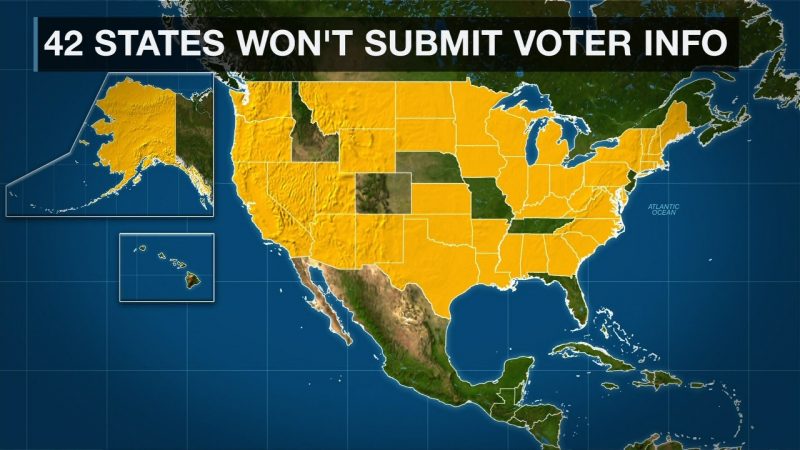At least 45 states and the District of Columbia say they are unable to provide at least some of the information sought by Presidential Advisory Commission on Election Integrity vice chairman Kris Kobach, a bipartisan rebuke to a group formed by President Trump to expose alleged voter fraud in US elections.
This is noteworthy. But it glosses over the broader point that needs to be made regarding this commission: There is absolutely zero evidence of widespread voter fraud in US elections. None. Zip.
Take this study by Loyola Law School professor Justin Levitt, in which he tracked US elections from 2000 to 2014 in search of voter fraud, or, as he put it, “specific, credible allegation that someone may have pretended to be someone else at the polls.”
He found 31 such instances out of more than 1 billion (yes, billion with a “b”) votes cast. Thirty-one!
That doesn’t mean that each of those 31 shouldn’t be examined closely in hopes of making that number zero. But what it does mean is that there is simply no evidence of any sort of broad-scale voter fraud in the country.
Levitt’s study is far from the only one on alleged voter fraud to draw the conclusion that it doesn’t really exist.
A five-year study on voter fraud commissioned by the George W. Bush administration reached that same conclusion back in 2007. Wrote The New York Times at the time: “The Justice Department has turned up virtually no evidence of any organized effort to skew federal elections.”
There are lots (and lots) more studies that suggest the same thing. Yes, there are the very occasional instances of voter fraud. And yes, they occasionally have malicious motives. But to the extent there are voter fraud issues, they are often attributable to honest mistakes. And there is just no evidence to support charges of widespread or coordinated voter fraud.
What’s happening with the idea that there’s widespread voter fraud appears to be analysis by anecdote. One small incidence of voter fraud — whether mistaken or malicious — is used to conclude that this sort of thing is rampant when, as broader looks at our voting system makes clear, it is not. (Journalism often makes this same analysis-by-anecdote mistake, by the way. Going to a Panera and talking to 4 people who all say the same thing isn’t conclusive evidence of anything other than that 4 people agree on something.)
What this Kobach Commission is doing is offering a conclusion in search of a problem. Trump has repeatedly made clear that he believes 3 to 5 million people voted illegally in the 2016 election. “In addition to winning the Electoral College in a landslide, I won the popular vote if you deduct the millions of people who voted illegally,” Trump tweeted on November 27, 2016.
But there is no evidence to back up that claim. By creating this commission by executive order in May, Trump is hoping that he can retroactively prove that he’s right about the existence of massive voter fraud.
If past is prologue, Trump will be out of luck.
CLARIFICATION: This story has been updated to better reflect the nature of the states’ positions.
